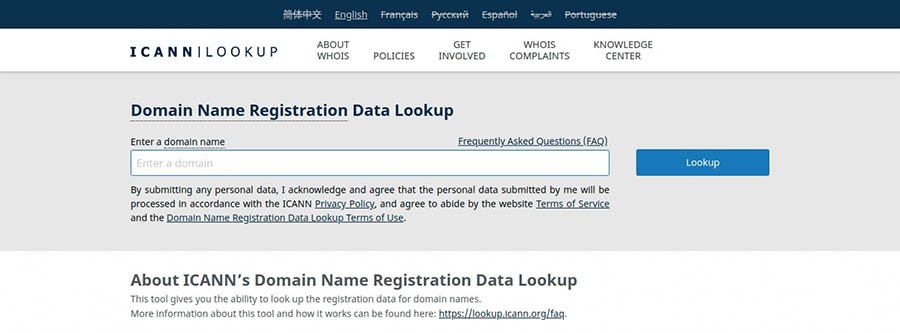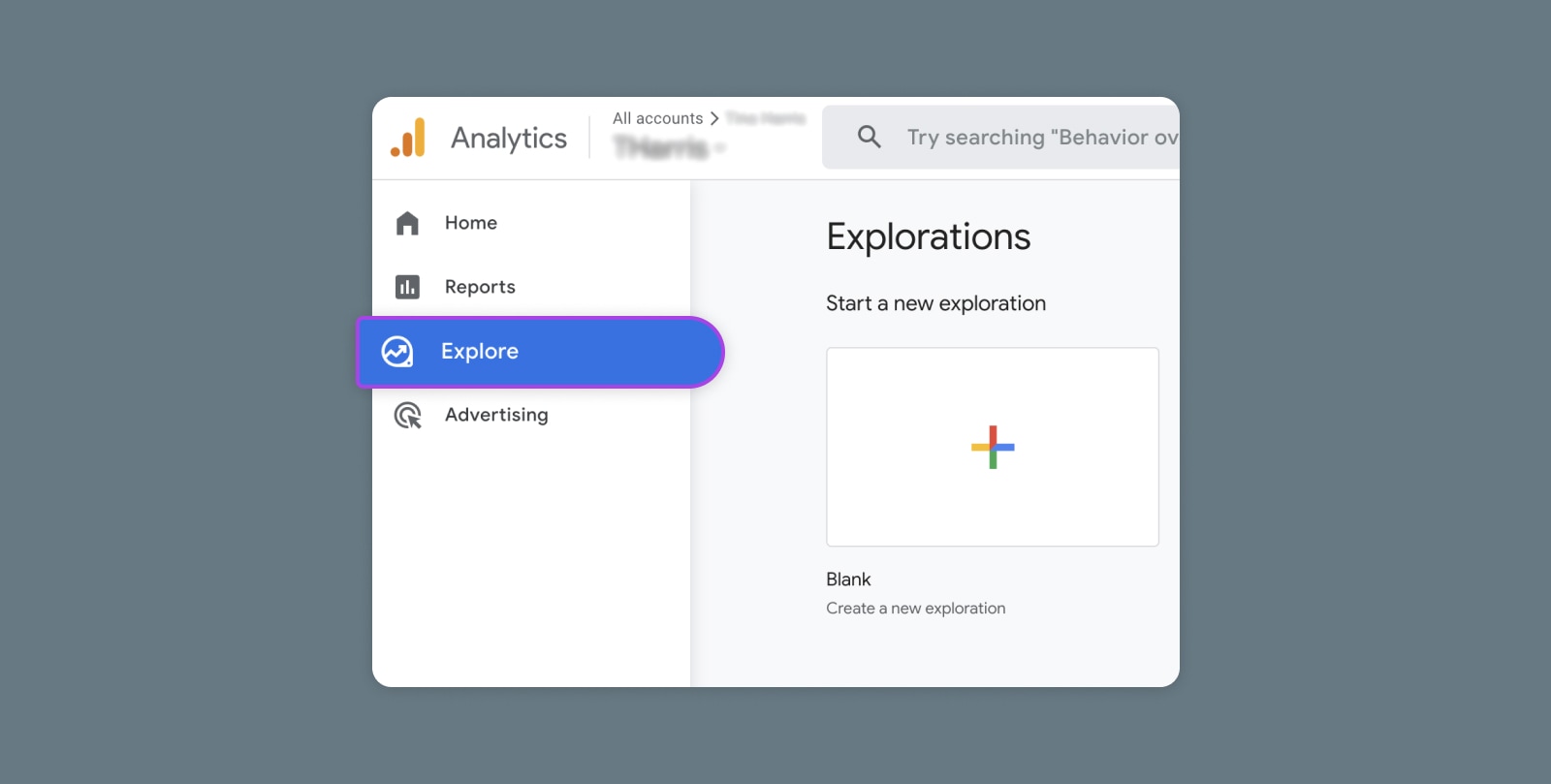One of the most important concerns for any business is increasing brand visibility. Among other things, this requires choosing a strong domain name.
But here’s the (not quite) million-dollar question: How much will it cost you?
There are a few factors involved, but it’s not hard to estimate what you can expect to spend on a domain name for your website. Being armed with this knowledge upfront is crucial to make sure that you’re getting a good deal and not overextending your budget.
In this article, we’ll discuss the most important factors to keep in mind when choosing and buying a domain name. We’ll also discuss how much you can expect to spend and how domain price relates to your web hosting service. Feel free to jump ahead to the section that’s most important to you.
- What Is a Domain Name?
- How Much Does a Domain Name Cost?
- How to Register a Domain Name?
- Domain Name FAQs
Let’s get started!
Your Idea Starts with a Great Domain Name
Don’t let someone else register your URL. Search DreamHost’s 400+ TLDs to find the perfect fit for your website.

What Is a Domain Name (And Why Do You Need One)?
To visit a website through your browser, you’ll usually enter an address that tells the browser where to go. It usually begins with “http” or “https”. Some popular examples of web addresses are https://facebook.com/ and https://www.google.com/.

However, what we’re interested in is the latter part of those addresses: i.e., “google.com”. That’s the site’s domain name, and one of the first things you’ll do when building a website is to register one. This is what makes it possible for people to access your site easily on the internet. A unique and professional domain name can even help instill trust in your brand.
You’ll usually start thinking about acquiring a domain name when you’re considering a new business idea or creating a new site. However, you could also buy domain names to hold on to them for future use or to resell them for a profit.
If you’d like a domain-extension deep dive, check out our beginner’s guide to domain name registration.
How Much Does a Domain Name Cost (And What Determines This Price)?
The cost of a domain name will be affected by several factors. These can include:
- Your domain registrar (the company you’re buying from)
- Your Top-Level Domain (TLD); options range from .com and .org to .inc and .club
- The length of your contract with your registrar
- Whether or not you’re also paying for domain name privacy
- The popularity of the keywords included in your domain name (domain registries set the prices for popular keywords)
You can expect to spend around $10 to $20 per year for most domain names. This can go up to $50 or more for some new TLDs — think extensions .best and .bio — while high-demand domains with TLDs like .game can cost a few hundred dollars.
It’s also important to know that some web hosting services provide a free domain with the purchase of a hosting plan.
On the other hand, certain domains with broad single-word names, such as hotels.com, business.com, insurance.com, and so on, have been known to sell for millions of dollars. These are premium domain names and won’t be sold by every registrar.
Related: What’s My Domain Worth? How to Value Your Domain Name
How to Buy a Domain Name (5 Key Tips)
There are a few things to consider when you’re in the market for a domain name. All of these can affect how much you’re likely to pay, so it’s best to be prepared for the most common scenarios in advance.
1. What to Do If the Domain Name You Want Is Already Taken
If your desired domain name is unavailable, you’ll need to decide how much using it is worth to you. You’ll likely have to spend a lot of money if you’re determined to buy it from the current owner.
Because of the California Consumer Privacy Act and GDPR regulations from the European Union, it’s not quite as easy as it used to be to look up a domain owner’s contact information on the WHOIS directory. However, you can still use the directory to see the organization name related to the domain.

Even if the owner has opted for full domain name privacy protection, their domain registrar should be able to help you connect with the domain owner via a third-party company, such as Tiered Access. This helps to ensure privacy for the domain owner. You should expect the process to take several days.
Once you’ve made contact, the next step is to make an offer, either directly or through a domain name broker. For a fee of 15–20% of the transaction cost, a broker can assist in managing the negotiation process and provides protection for your money.
Of course, you have other alternatives as well.
You could use a different TLD, set up a domain lease, or search for a very similar name that is available. We’ll discuss some tips for doing that next!
Related: Domain Wars: The Top 5 Ugliest Domain Disputes
2. How to Find Available Domains
Whether you’re just starting to look or you need a replacement for an existing domain name, there are a few ways to explore your options. You might start by doing some brainstorming based on keywords that are related to your business or website.
You’ll generally want to keep your domain name simple, to avoid misspellings and confusion. A search tool can come in handy here. You can enter your ideas in our domain search tool to learn about availability and pricing. You’ll also get suggestions for related domains, which can be helpful when your first choice is unavailable.

This tool also enables you to move right on to the purchase phase if your desired name is available.
Related: What Is Domain Privacy Protection?
3. How to Choose the Best Domain Option for You
Some rules of thumb to keep in mind as you shop for a domain name are:
- Buy a .com domain unless you have a good reason not to (for example, if the .com version of your domain name is unavailable or if you’re only targeting a regional audience). To learn more about your options, check out our guide to new top-level domains.
- Short domains are generally best. However, short doesn’t always mean simple. You’ll want to strike a balance between length and memorability.
- Don’t forget to research the domain name. You’ll want to make sure that your brand and domain names don’t infringe on any trademarks and that there isn’t a negative history associated with the domain. It’s also important to note that many registrars don’t allow users to register domains related to tragic events or disasters. For example, NameCheap restricted the registration of domains with COVID-19 related terms, such as coronavirus, n95, or covid, to combat fraud.
We used to caution against using symbols or numerals in your domain name, but several large organizations now successfully deploy hyphens and numbers in their URLs. Consider, for example, financial powerhouse deutsche-bank.com or 62.com, one of the largest domain registrars in China. Just remember: If you’re going to add a hyphen or numerals to your domain name, make sure it’s easy to remember.
Of course, it can take some effort to settle on the right option. However, this upfront investment of time can pay off with a strong domain that benefits your site and never needs to be changed.
4. Where to Buy a Domain Name
Buying a new domain, rather than one that’s already owned, will be the best option for most people. The domain registration and purchase processes vary a little based on what registrar you use but should be straightforward.
Domain registrars are companies that manage and sell domain names. There are standalone registrars, but most hosting providers also sell domain names.
For example, registering a domain here at DreamHost can be an easy and practical way to go. Since we’re both a domain registrar and a hosting provider, you can make your purchases together as a package.
Related: Didn’t Buy Your Domain With DreamHost? The Domain Transfer Process, Explained
5. Domain Name Fees to Watch Out for
When buying a domain name, you’ll need to watch out for hidden fees. Certain fees can be nudged into the dark corners of a registrar’s terms of service. These might include:
- Transfer fees: This is the cost of moving your domain from one registrar to another. This type of fee was commonplace in the early aughts but is pretty unusual in today’s market.
- Renewal fees: Domain name registrations typically work on a contract basis. For example, a registration may cover just the first year, after which the domain will need to be renewed periodically afterward.
It’s not uncommon for a registrar to offer a low price for the first year and then increase it upon renewal. And that’s not necessarily the registrar’s fault. For example, the price of .com is governed by the U.S. Department of Commerce, and domain registries, such as VeriSign, must obey the law.
Additionally, some registrars might offer discounts that only apply if your contract with them is long-term. This means you’ll need to ensure that your costs will remain relatively stable.
You’ll also want to be wary of registrars that offer domain names for unusually cheap prices. These might charge high administration fees or manipulate your WHOIS information.
Related: The Hidden Costs of Cheap Domains
Domain Name FAQs
Before we wrap up, let’s answer a few common questions about buying domain names.
Do I need more than one domain name?
This is more a business decision than a necessity. You only need one domain name for your website. However, you might want to buy multiple domains with spelling variants and redirect them to your site, just in case people misspell your main address.
You might also have unique domain names for different aspects of your business to help your users find what they need more easily. An alternate domain can also serve as an easier-to-remember variant of the original domain.
And if you’re in a business where the competition is stiff — say you’re running for elected office — it can be worth it to buy several variations of your domain (including ones that are not very flattering, ahem) so that the opposition can’t use them.
What are the best TLDs?
The best TLD is simply the most meaningful and appropriate one for your business. This means it depends on what you’re using your site for, as well as how much you can afford to spend.
For most sites, .com or another popular option will suffice. However, a company might use a .info or .help domain for its knowledge base and .blog for its company blog. Another might also use .promo for handling discounts, .design for sharing digital assets, and .dev for its developers.
How are domain names and Search Engine Optimization (SEO) related?
It’s important to start thinking of ways to make your site search engine-ready from the outset. Since keywords are used by search engines for ranking your content, you might want to consider including a relevant keyword in your domain name.
Keep in mind that Google’s algorithm is resistant to keyword-stuffing: the practice of cramming your domain name with keywords so as to rank higher than other websites. So don’t try to include multiple keywords in your domain as this can have a detrimental effect.
The good news is your choice of TLD will not affect your ranking on Google. The search engine’s algorithm treats new TLDs (e.g. .xyz and .online) and legacy TLDs (e.g. .com and .org) equally.
Related: The Top 11 SEO Best Practices for Domains
How many domains can I host?
You can host an unlimited number of domains on our Shared Unlimited and VPS hosting plans. You’ll also be able to create email addresses under each domain, set up forwarders to send emails to your main email account, and forward domains to existing websites. Our control panel also enables you to manage all your domains easily in one central location.
Can I use my domain name for email, as well as for another site such as LinkedIn?
Yes, you can set up email at your custom domain name and still have it point to sites such as Facebook, Twitter, or LinkedIn. Just as getting a professional domain name can help with your brand image, using it for email addresses and social media sites can do the same.
Get Professional Email @yourdomain
Promote your website with every message you send when you set up professional email with DreamHost. Plans start at $1.67/mo.

Domain Pricing Made Easy
In addition to creating a hosting account, registering a domain name is one of the most important business decisions you’ll make. It offers you a way to maintain an online presence and increase visibility for your brand. However, it can take some effort to do the necessary due diligence, and ensure that you’re getting the best bang for your buck.
In this post, we discussed some key considerations to keep in mind when shopping for a domain name. These include:
- What to do if the domain name you want is already taken.
- How to find available domains.
- How to choose the best domain option for you.
- Where to register a domain name (consider your web host if they’re an accredited registrar).
- Domain name fees to watch out for.
Ready to buy a domain name? With our domains, you can expect straightforward pricing, access to hundreds of unique TLDs, easy management, and more!
The post How Much Does a Domain Name Cost? appeared first on Website Guides, Tips & Knowledge.
source https://www.dreamhost.com/blog/domain-name-cost/

No comments:
Post a Comment